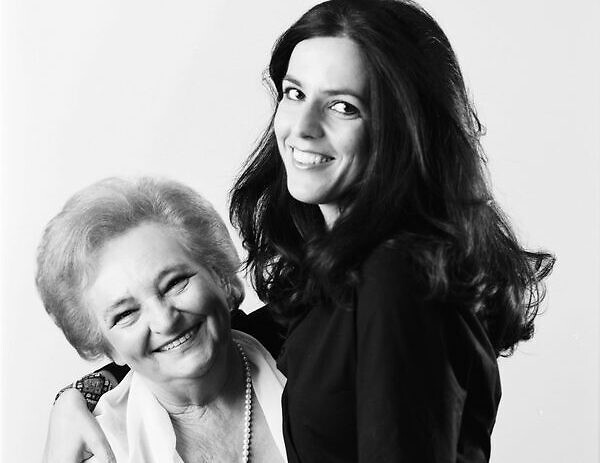When Rachelle Unreich picked up her metaphorical pen to tell her mother’s story, she didn’t originally aim to write it as a Holocaust story. And indeed, it’s not. While A Brilliant Life shares the story of Rachelle’s mother, Mira, the book is just as much about the relationship between mothers and daughters as it is about Mira’s survival.
“I wrote it as a tribute to her and I hope people who have felt that grief feel some connection to the words,” she told The AJN. “I hope they feel uplifted by her. She had, in a way, a template for living by, which was to look and reach for the happiness, and to see a goodness in people.”
Rachelle always felt compelled to share Mira’s story and as a journalist and her family’s “archivist”, she knew it would eventually be her. But, it also felt quite overwhelming at times.
“I needed to get it right, then I needed to write it in a way that really hit home and made people relate to my mother,” she recalled. “I pushed it aside for many years.”
When Mira was diagnosed with cancer, Rachelle decided it was time to interview her. While she had a lot of material thanks to her mother’s testimony from numerous interviews, Rachelle and her siblings viewed this interview as a way to distract their mother from her pain.
It took until COVID, though, for Rachelle to actually write the novel.
“All my work as a journalist started shrivelling up and I was left with time to do it,” she said. “I could also see the bleakness around me and I realised that my mother’s story had so much hope and inspiration in it, it could help.”
Rachelle recalled a walk with her neighbour as the final push to write Mira’s story. Her neighbour was going through trauma and was asking how Mira not only managed to survive, but thrive, after the Holocaust. After a couple of conversations, Rachelle sat at her desk and wrote. She didn’t stop for six weeks; until she had a first draft.
Despite getting her mother’s story from her own interview and the testimonies with various museums, Rachelle explained that she also did extensive research. A journalist through and through.
“Even when someone tells their story, memory can play a part in getting small things wrong,” Rachelle said. “When you’ve gone through something traumatic, you do remember things really distinctly, and I trusted in that, but as a journalist, I wanted to verify as much as I could.”
This included contacting various museums, and chats with numerous historians and academics. Rachelle explained that the research revealed things that her mother never knew. For example, Mira thought the first selection she went through was when she arrived at Plaszow concentration camp, but she was in fact subjected to one in Auschwitz when Josef Mengele chose her to live. Mira never recalled meeting Mengele.

Throughout the book, Rachelle weaves through Mira’s deep faith, which she told The AJN underpinned Mira’s survival. “There were so many elements to this. Her faith in Judaism, her religious faith, but there was also faith in the universe, and faith that her own mother was still connected with her even after her death. I think that was a strong belief that she really passed on to me. When you start to believe that the world is more meaningful than just this footprint you’re putting on the ground until the day you die, everything takes on more resonance. For me, this has informed a lot of what I do and a lot of what I believe.”
Rachelle also hoped that her mother’s magic would come across in her story, explaining that many who met Mira felt that magic too. It’s something she’s especially holding onto now. “I have to believe that, especially in dark times, the voice of my mother is going to rise to the top. Because I believe in her magic,” she said before continuing to explain that Mira believed in the light and love of humanity.
“She saw people equally. She did not choose to focus on the cruelty, she focused on the goodness of people. She had hope in humankind, she focused on moving forward and seeing the light, not the darkness.”
Rachelle believes that her mother would be proud of A Brilliant Life, albeit humble in being the subject of the novel.
“She certainly didn’t see herself as anyone special, it was the people around her who did,” Rachelle said. “People were constantly inspired by her and moved by her, even in the smallest ways. I really hope that people can find comfort in her story. Her words are helpful when life is rosy, but they’re extremely moving when life is challenging and hard.”
A Brilliant Life is published by Hachette Australia, $34.99 rrp.


comments